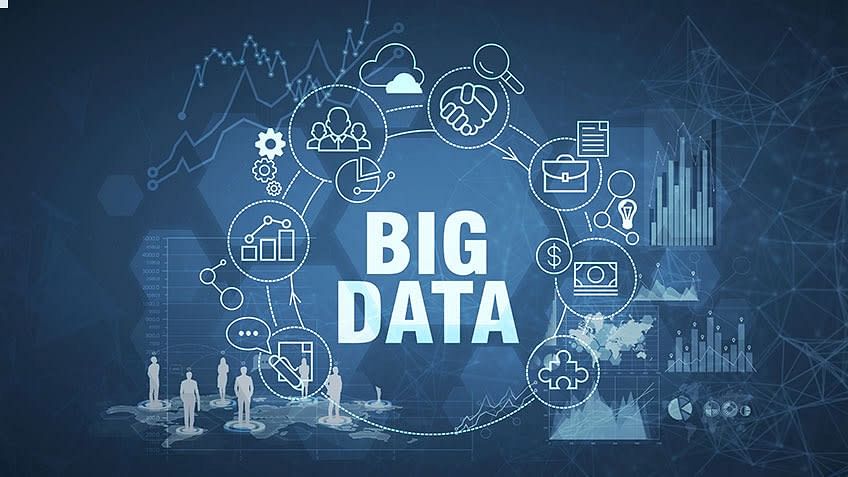

Big Data: The Invisible Hand Shaping Our World
We all agree that we cannot overstate the significance of data, especially not in this era which is defined by digital transformation. Every click, purchase, tweet, and sensor reading generates a trail of data points, collectively known as “big data.” As organizations and individuals continue to contribute to this digital data deluge, the power and potential of big data are becoming increasingly evident. This blog will take you on a journey where you will unravel the immense impact of big data, exploring its evolution, applications, and future prospects. Therefore, I suggest you read it till the end because you don’t want to miss anything, do you?
The Birth of Big Data
The concept of big data isn’t entirely new; it has evolved with the rise of the digital age. The term was coined to describe datasets that are too large and complex for traditional data-processing applications to manage effectively.
The three Vs often characterize these datasets:
Volume: Big data involves vast amounts of information. The sheer scale of data is a defining feature.
Velocity: Data is generated rapidly. Streaming data from various sources, such as social media, IoT devices, and financial transactions, requires real-time processing.
Variety: Data comes in diverse formats, including structured data (e.g., databases), unstructured data (e.g., text, images), and semi-structured data (e.g., XML files).
Now let’s find out how big data is changing the operations in different domains.
Applications That Reshape Industries
Big data has permeated nearly every aspect of our lives, from the services we use to the products we buy. Here are some key domains where big data is making a transformative impact:
Healthcare
Big data analytics are enhancing patient care, disease management, and medical research. Predictive analytics help identify potential health issues, while genomic data aids in precision medicine.
Business and Marketing
Businesses harness big data to understand consumer behavior, optimize marketing strategies, and tailor products and services to meet customer needs. Recommendations from platforms like Amazon and Netflix are fueled by big data analytics.
Finance
The financial sector relies on big data to detect fraudulent transactions, manage risk, and optimize investments. Algorithmic trading uses real-time data analysis to make split-second decisions.
Smart Cities
Cities are becoming smarter by collecting data on transportation, energy consumption, and public services. This data is used to improve urban planning, reduce traffic congestion, and enhance sustainability.
Education
Institutions are personalizing education through data-driven insights. Adaptive learning platforms use big data to customize coursework and improve student outcomes.
Manufacturing
Smart factories leverage big data and IoT sensors to optimize production processes, monitor equipment health, and minimize downtime.
Energy
we can use big data analytics to manage power grids, reduce energy waste, and support the transition to renewable energy sources.
Cybersecurity
Big data can make cybersecurity a robust and invincible one. It fights the battle against cyber threats. Real-time analysis of network traffic helps detect anomalies and potential attacks.
Challenges and Ethical Considerations
While the potential of big data is enormous, it’s not without its challenges. Data privacy, security, and the ethical use of data are pressing concerns. Organizations must adhere to strict regulations and best practices to protect sensitive information and maintain public trust.
The Future of Big Data
The journey of big data is far from over. The future promises even greater advancements, driven by emerging technologies like quantum computing. With the ability to process vast datasets at unprecedented speeds, quantum computers will open new frontiers in data analysis, revolutionizing industries, solving complex problems, and unlocking deeper insights.
In a world where data is the new currency, the importance of big data continues to grow. As the volume, velocity, and variety of data expand, so does its potential to shape our future. Adopting big data and harnessing its insights is no longer an option but a necessity for those seeking to stay competitive in an ever-evolving digital landscape.
Conclusion
So, whether you’re a business leader, researcher, or simply a curious mind, keep an eye on the evolving world of big data. It’s a realm of endless possibilities, where the next groundbreaking discovery or transformative innovation could be just a data point away.


Leave a Reply